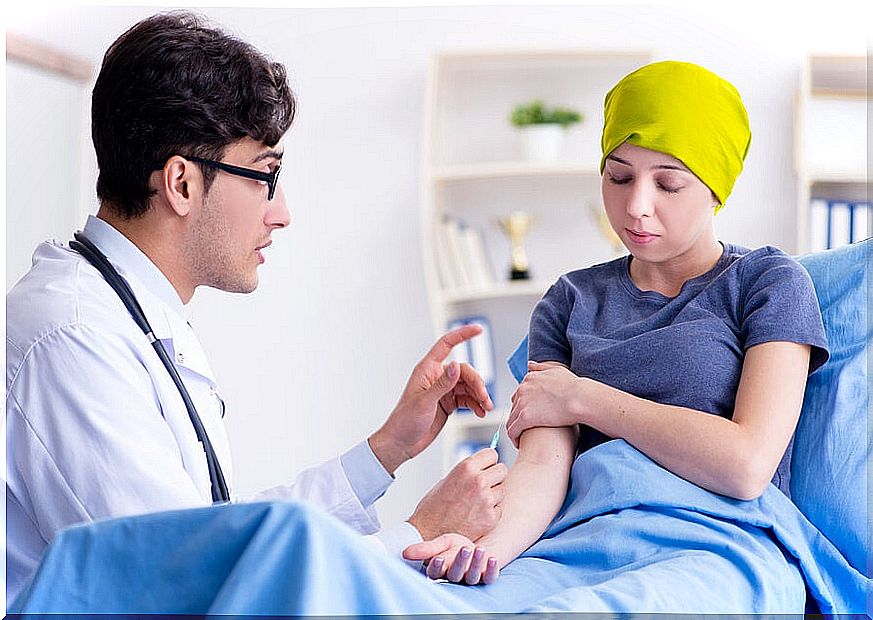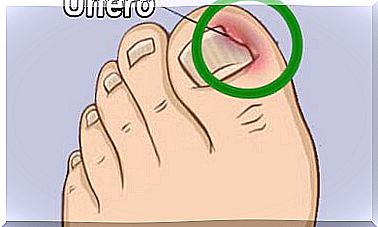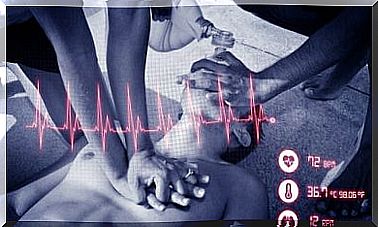Cancer Affects Not Only Physical Health But Also Emotional Health
Cancer is one of the most prevalent diseases in the world. In 2018 alone, 18.1 million new cases were diagnosed. In addition, it is estimated that the number of patients will continue to grow in the coming decades, reaching 29.5 million new diagnoses in 2040.
Although the causes of cancer are multifactorial – genetic origin, infections, radiation or exposure to chemical carcinogens – there is a high percentage of cases due to lifestyle.
Therefore, tobacco, alcohol, sedentary lifestyle, chronic stress, obesity and inadequate nutrition are factors that directly or indirectly increase the risk of developing a malignant tumor.
Like any other disease that develops over time and has a high mortality rate, cancer affects the emotional level in a very profound way.
How do patients react to the diagnosis?
Faced with a diagnosis of malignancy, subjects react in very different ways depending on their personality and the meaning that cancer has for them. According to Moorey and Greer (1989), patients respond according to their own adjustment style. The top five are:
- Struggle. The person adopts a proactive attitude towards the disease, seeking information and becoming involved in the treatment.
- Denial. The patient does not talk about the problem and acts as if it were not with him.
- Fatalism. The subject puts himself in the worst possible scenario, whether he has objective data to corroborate it or not.
- Desperation. The patient has an excess of negative thoughts that favor a depressive picture.
- Anxious concern. The patient feels great difficulty in managing the uncertainty generated by the disease.

Do the patient’s emotions change over time?
Just as patients go through different phases of physical illness, their thoughts, feelings, and emotions also evolve and adapt to each stage.
Thus, it will be very different if the patient responds to treatment and there is a cure, if there is a partial remission, if there is a relapse, if the subject presents metastasis or is in the terminal phase.
Therefore, the previous personality of the patient plus the stage of the cancer in which it is, will largely determine the psychological adjustment of the person.
Anxiety and depression in cancer patients
Anxiety and depression are the most common psychological reactions in cancer patients.
Depression
According to various studies, the prevalence of depression can vary between 4% and 58% of patients, depending on the type of population studied and the stage in which the patients are.
The average is around 40%, a very high percentage compared to the general population, which is around 3-5% on average in Europe.
A depressive picture can make the patient worse control the symptoms of the disease and refuse treatment more often.
For this reason, it is important that the environment is familiar with depressive symptoms and maintains direct communication with the psycho-oncologist or person who provides emotional support to the patient.

Anxiety
Cancer can cause many situations in which patients feel nervous, even intense fear. Some of the most common reasons are:
- Reactive anxiety at diagnosis.
- Difficulty managing uncertainty.
- Reactivation of previous anxiety : phobias, panic attacks, generalized anxiety or post-traumatic stress.
- Fear of physical suffering and pain.
- Feeling of loss of control
- Existential anguish.
- Anxiety increased by the pharmacological treatments themselves .
- Suffering from the pain of the family environment.
- Fear of treatments (side effects, surgical interventions, physical and psychological consequences).
- Fear of death
Emotional support is important
The survival rate of cancer has improved in recent years in many of its types, but even so it continues to be a fatal disease for many patients.
Often, relatives and relatives we focus more on the results of tests or biopsies, and we leave the emotional state of the patient in the background. However, studies show that the patient may be suffering significantly.
For this reason, it is essential that the family and those closest to them learn to provide emotional support to the patient, either through specific training, consulting with a therapist or with a specialist in psycho-oncology.









